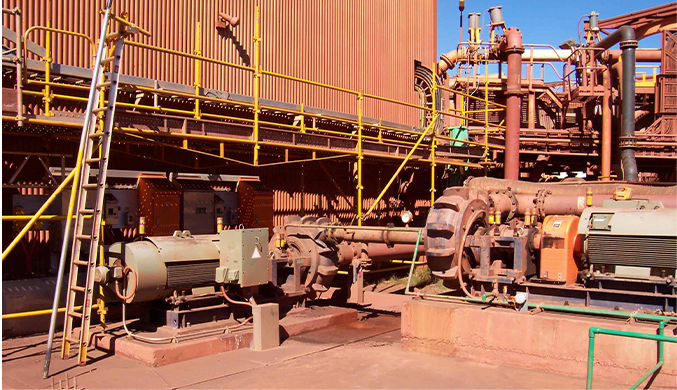English
- Afrikaans
- Albanian
- Amharic
- Arabic
- Armenian
- Azerbaijani
- Basque
- Belarusian
- Bengali
- Bosnian
- Bulgarian
- Catalan
- Cebuano
- Corsican
- Croatian
- Czech
- Danish
- Dutch
- English
- Esperanto
- Estonian
- Finnish
- French
- Frisian
- Galician
- Georgian
- German
- Greek
- Gujarati
- Haitian Creole
- hausa
- hawaiian
- Hebrew
- Hindi
- Miao
- Hungarian
- Icelandic
- igbo
- Indonesian
- irish
- Italian
- Japanese
- Javanese
- Kannada
- kazakh
- Khmer
- Rwandese
- Korean
- Kurdish
- Kyrgyz
- Lao
- Latin
- Latvian
- Lithuanian
- Luxembourgish
- Macedonian
- Malgashi
- Malay
- Malayalam
- Maltese
- Maori
- Marathi
- Mongolian
- Myanmar
- Nepali
- Norwegian
- Norwegian
- Occitan
- Pashto
- Persian
- Polish
- Portuguese
- Punjabi
- Romanian
- Russian
- Samoan
- Scottish Gaelic
- Serbian
- Sesotho
- Shona
- Sindhi
- Sinhala
- Slovak
- Slovenian
- Somali
- Spanish
- Sundanese
- Swahili
- Swedish
- Tagalog
- Tajik
- Tamil
- Tatar
- Telugu
- Thai
- Turkish
- Turkmen
- Ukrainian
- Urdu
- Uighur
- Uzbek
- Vietnamese
- Welsh
- Bantu
- Yiddish
- Yoruba
- Zulu
Telephone: +86 13120555503
Email: frank@cypump.com
Oct . 21, 2024 20:07 Back to list
Efficient Solutions for Pumping Cement Slurry in Construction and Industrial Applications
Understanding Cement Slurry Pumps A Comprehensive Overview
Cement slurry pumps are essential components in the construction and oil drilling industries, designed to handle the tough job of transporting cement slurries over various distances. These pumps play a vital role in ensuring the efficiency and effectiveness of cementing operations, which are crucial for creating stable foundations and completing sealing processes in drilling activities.
What is a Cement Slurry?
Before delving into the specifics of cement slurry pumps, it is important to understand what a cement slurry is. A cement slurry is a mixture of cement, water, and, occasionally, other additives. This mixture is used in various applications, including the construction of buildings, bridges, and roads, and in the oil and gas sector for well cementing. The properties of the cement slurry, such as its viscosity, density, and setting time, can significantly impact the quality of the work, making the careful mixture and transport of the slurry essential.
The Role of Cement Slurry Pumps
Cement slurry pumps are specifically designed to transport these viscous and abrasive materials. The pumps must be capable of handling the high solids content typically found in cement slurries while maintaining a consistent flow rate. This is critical because irregular flow can lead to weak spots in construction or insufficient sealing in drilling operations.
Types of Cement Slurry Pumps
Several types of pumps can be utilized for transporting cement slurry, including
1. Centrifugal Pumps These are the most commonly used pumps for cement slurry. They operate using a rotating impeller to create a centrifugal force that moves the cement slurry through the pump and into pipes. Centrifugal pumps are suitable for transferring low-viscosity slurries but may struggle with higher viscosity mixtures.
2. Positive Displacement Pumps These pumps function by trapping a fixed volume of slurry and forcing it through the pump mechanics. They are particularly effective for high-viscosity slurries and offer consistent flow rates irrespective of the pressure build-up.
cement slurry pump

3. Progressing Cavity Pumps These pumps consist of an eccentric screw that moves the slurry through a helical stator. This design allows them to handle a wide range of viscosities and solids content without losing efficiency.
Key Considerations for Selecting a Cement Slurry Pump
When selecting a cement slurry pump, several factors should be considered
1. Viscosity and Density Understanding the viscosity and density of the cement slurry is crucial for selecting a pump that can handle the specific material without clogging or damaging the equipment.
2. Distance and Elevation The distance the slurry needs to be pumped and the elevation changes can significantly affect pump performance. Calculating the required pressure and flow rate based on these factors is vital for efficient operation.
3. Wear Resistance Cement slurries can be abrasive, requiring pumps with components made from durable materials that can withstand wear and tear.
4. Maintenance and Accessibility Choosing a pump that is easy to maintain and repair can minimize downtime and improve operational efficiency.
Conclusion
Cement slurry pumps are a critical element in various construction and oil drilling applications. Understanding the function and types of these pumps, along with key considerations for their selection, allows for better planning and execution of projects. With advances in pump technology, operators can now choose from a range of pumps that not only enhance efficiency but also ensure the durability and reliability required for successful cementing operations. Whether in construction or the oilfield, the right cement slurry pump can make all the difference in achieving high-quality results.
-
ISG Series Vertical Pipeline Pump - Chi Yuan Pumps Co., LTD.|Advanced Hydraulic Design&Energy-Efficient Solutions
NewsJul.30,2025
-
ISG Series Vertical Pipeline Pump - Chi Yuan Pumps Co., LTD.
NewsJul.30,2025
-
ISG Series Vertical Pipeline Pump - Chi Yuan Pumps Co., LTD.|energy-efficient fluid handling&industrial durability
NewsJul.30,2025
-
ISG Series Vertical Pipeline Pump - Chi Yuan Pumps | Advanced Engineering&Industrial Efficiency
NewsJul.30,2025
-
ISG Series Pipeline Pump - Chi Yuan Pumps | High Efficiency, Energy Saving
NewsJul.30,2025
-
ISG Series Vertical Pipeline Pump-Chi Yuan Pumps|High Efficiency&Reliable Performance
NewsJul.29,2025










